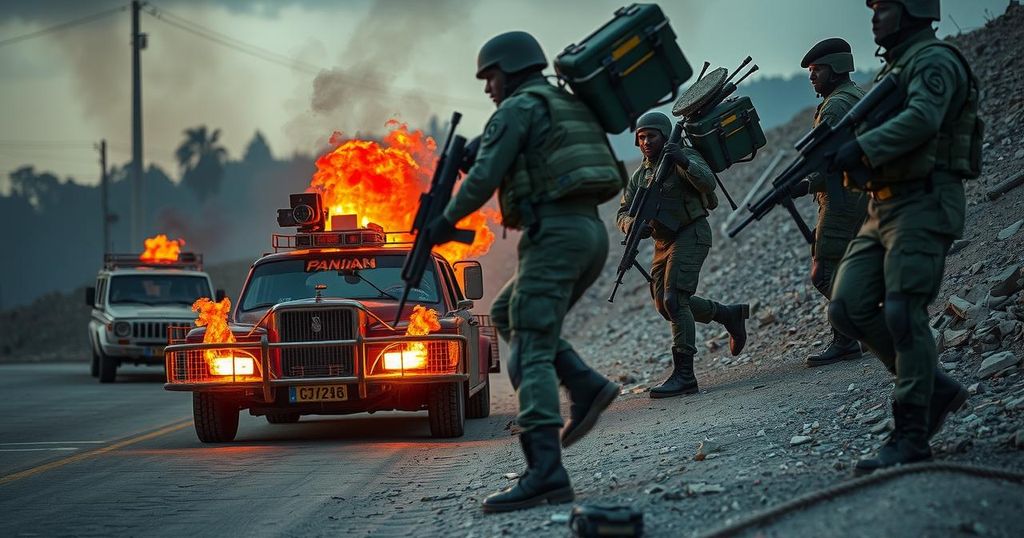Escalating violence between the Congolese army and M23 rebels in eastern Congo precedes critical peace talks. Allegations of civilian deaths by rebels heighten tensions, with both sides blaming each other for ongoing hostilities. The humanitarian situation is dire, with millions displaced as Rwanda’s involvement adds another layer of complexity.
Recent clashes between the Congolese army and the M23 rebel group have escalated in eastern Congo in the lead-up to crucial peace talks scheduled for Sunday. The army reported that M23 rebels allegedly killed 12 civilians in the Lubero territory earlier this week; however, M23 spokespersons dismissed these claims as unfounded propaganda. The conflict in eastern Congo involves approximately 100 armed groups competing for control in a mineral-rich region, contributing to one of the world’s most severe humanitarian crises, with over 7 million individuals displaced from their homes.
Accusations from the Congolese government, supported by the United Nations, suggest Rwandan support for M23 actions. Despite Rwanda’s denials, they admitted to having troops and missile systems in eastern Congo to protect national security, citing the movements of Congolese military forces near their border. U.N. experts estimate that the Rwandan troop presence may consist of up to 4,000 personnel. Talks between the foreign ministers of Congo and Rwanda in the previous month established terms for the withdrawal of Rwandan forces from eastern Congo.
Following a ceasefire agreement signed in July, which took effect in August, hostilities have reignited. The United States recently expressed serious concern regarding M23’s breaches of the ceasefire. This latest surge in conflict occurs as President Felix Tshisekedi of Congo and President Paul Kagame of Rwanda prepare for their first official meeting in over a year, facilitated by Angola, aiming to mediate the ongoing tensions. Aline Kasereka, a local resident in Lubero, expressed the community’s urgent need for peace talks, stating, “We are tired of the war, every day we move, we do not know in which country we are anymore.”
Despite the diplomatic efforts, analysts like Henry Pacifique from the Kivu Security Barometer project exhibit skepticism about the peace talks, highlighting the tendency of both nations to blame each other for violations of agreements in the past.
The ongoing conflict in eastern Congo, particularly involving the M23 rebel group, is rooted in complex historical and political dynamics exacerbated by the region’s rich mineral resources. Over a hundred armed groups operate in this area, leading to widespread violence and instability. Displacement due to this conflict has reached alarming levels, affecting millions of lives. The strategic geopolitical implications between Congo and Rwanda have further complicated the situation, with both countries grappling for influence and security amidst international scrutiny and humanitarian needs. Previous ceasefire agreements have often collapsed, revealing deep mistrust and challenging the prospects of meaningful negotiations.
In summary, the intensifying conflict between the Congolese military and M23 rebels highlights the urgent need for effective peace negotiations amid an alarming humanitarian crisis affecting millions. As Congo and Rwanda prepare for high-stakes discussions, skepticism remains about the sincerity and viability of such talks, given the historical context of accusations and broken agreements. The voices of those affected, such as Aline Kasereka, underscore the pressing desire for an end to hostilities and the restoration of stability to the region.
Original Source: apnews.com






